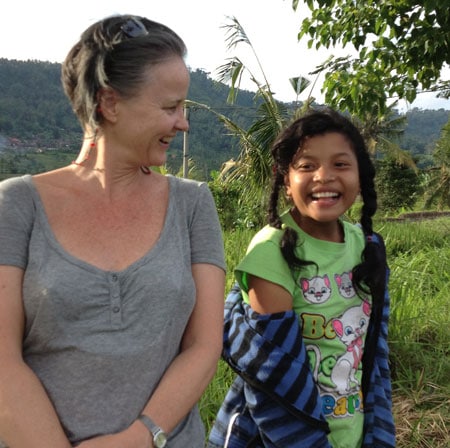
Countries Happiness Primitives
Our work sharing the teachings of universal unfoldment often takes us to foreign countries, some of which may be described by the industrialised world as ‘developing’. We used to call them ‘primitive’ but as our cultures evolved we’ve had the sense to realize that was too condescending; ‘developing’ is an improvement and no doubt an even better adjective awaits our discovery.
One thing we’ve noticed over the years is that there is an inverse relationship between smiling faces and disposable income (if anyone actually thinks their income is ‘disposable’). This is not some diatribe on what or who is ‘real’ or ‘authentic’; as some of our students said on a recent trip to Cambodia, as we visited a somewhat cash-strapped local town, ‘Oh, here are the real Cambodians’. We did notice that there weren’t many young adults present, and that these people were probably the staff we saw in the tourist hotels and restaurants in the nearest city. But as this young, next generation looked a lot like us (skin colour and lack of chubbiness aside) apparently some wouldn’t consider them real Cambodians, unlike their parents down the road. Which begs the question, ‘What is “real”’?
But, we digress. We spent time in the Balinese countryside recently, and we noticed that in the noticeably poorer villages the people seemed to smile more readily and frequently. We speculated on whether it was religion or community values that made them seemingly more content, or whether it was the familiar and comfortable state of their well-established cultural traditions and social connectedness that made them seem so much more present or their ongoing connection to nature as a daily part of life, with its rice paddies, ancient trees, oxen and bird life.
Perhaps it was that the kids seemed part of the adult world. Each with their tasks and duties, but not isolated in microenvironments or lost in smart phone satellite orbit. Whether at work, school or play, the kids seemed to have time for the adults, and perhaps more importantly, the adults had time for the kids.
There was not a sense of everyone being elsewhere while here and together. While they may be measured as ‘poor’ in financial terms, their social capital is abundant. And even as strangers and foreigners just walking down the streets of their town, they generously shared this with us.
Maybe, behind closed doors, they are every bit as stressed and troubled as their more affluent tourist neighbours but they weren’t showing it out on the streets, and maybe that in itself is worth a small fortune. On the streets and sidewalks in cities and villages of many ‘developed’ countries, we see more distracted, perplexed and unsmiling faces carried on tight and uncoordinated bodies. A friendly smile – whose warmth is so contagious – would surely be worth a dollar or two in today’s market economy.
As more and more of us recognize the value of ‘un-measurables’ like clean air and water and environmental sustainability, we’d do well to also reflect on (and invest in) the value of a smile or a friendly greeting. How worthy too is an engaged kind of well-disposed interest, even if unspoken, in foreign strangers walking through town.
By Doug Duncan & Catherine Pawasarat

